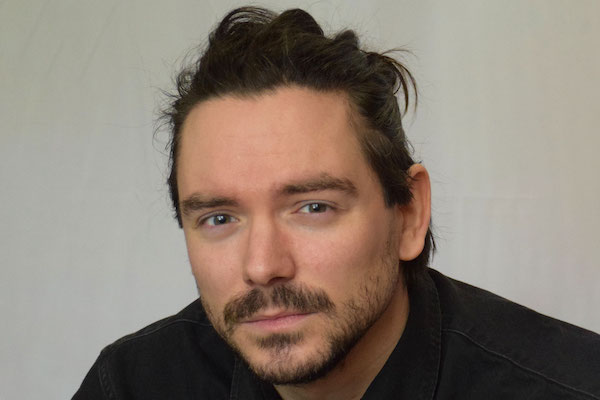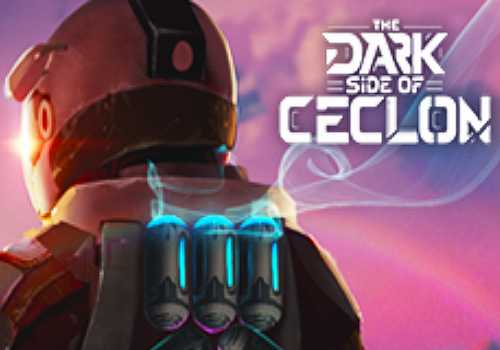
NYX Game Awards Winner Interview
Alexandre Huger
Kylotonn, France
Alexandre Huger has worked at various game development studios including Focus Home Interactive, Eugen Systems, and Ubisoft. Currently, he is a producer at Kylotonn. He is passionate about creating video games and teaches himself programming, using software like Unity and Photoshop and has been working on a solo project for over 4 years!
1 Please provide us with a brief bio of yourself and your background.
My name is Alexandre. I studied multimedia before specializing in video games. I then worked at Focus Home Interactive, Eugen Systems, and Ubisoft. I'm now a producer at Kylotonn.
2 What led you to become a Game Developer / Marketer?
I've always loved playing video games, starting with Nintendo NES and Windows 98. I also loved creating and designing things. I started RPG Maker XP in 2004. That was a long time ago! I teach myself 90% of the time, whether it's programming, using Unity, various image/video processing software like Photoshop, After Effects, or sound processing software. Everything needed to create a video game.
3 What is your role in the company, and what traits should a game developer / marketing professional possess to be successful in their role?
It's pretty simple. This is a solo project that I have been working on for over 4 years. To keep going all these years, it's mostly about having a passion, even a calling, for video games. It requires determination, ambition, perseverance, and acceptance that the journey will not be easy. It's also about being open to self-criticism and receiving feedback as a gift to improve the game to new heights, and of course, always wanting more knowledge.
4 Tell us more about your studio / company.
I founded my micro-enterprise (independent developer), SOLIDS Studio, to market my first video game, UNFAIR, on Steam. It was released in 2019 – it lives up to its name! I then continued with two small projects during the development of The Dark Side of CECLON.
5 What is your own definition of a great game?
That's a good question. I think it's ultimately a very personal feeling. I have a lot of answers in mind. But to choose one, I believe gameplay is the central point of a video game for me; it's the player's direct interaction/action with the game. Add to that a challenging but well-balanced difficulty that offers that famous reward, that sense of accomplishment! If on top of that, you have a good storyline, true immersion, and the ability to gradually improve your character to make them more powerful – essentially, the satisfaction of progressing – then you have a very interesting game.
6 Describe the genres of the game(s) your studio / company specializes in, as well as its main characteristics.
Overall, what stands out most from my two major projects are the RPG aspects (power progression), the principle of facing challenges (bosses), experiencing the satisfaction of success, and finally, the exploration aspect (finding all the secrets).
7 Tell us more about your ideation process.
Inspiration for my projects comes naturally, probably a sweet blend of the games I've played and my imagination. Afterward, once the idea is clear, I jot down all the ideas that come to me, a sort of brainstorming. As production progresses, I test, modify, remove, and validate ideas; gradually, I shape the project like a stone sculptor.
8 Congratulations! As the winner of the NYX Game Awards, what does it mean for you and your team to receive this distinction?
It's an honor and real pride to have received this gold award at NYX; it's already a great personal achievement! I'm very happy about that. As an independent developer, we often work in the shadows without external "rewards" for years; this award further strengthens my determination and motivation after these 4 years of hard work. It's like seeing the light at the end of the tunnel waiting for us with a good fast food meal.
9 How has winning an international award help promote your company and game?
Having this award will allow me to show it on Steam and social networks. I think it's important to have awards to "reassure" people about the quality of the work done. It's a kind of validation that is very important in the video game industry.
10 What are the challenges of developing / marketing your winning entry(ies)?
As far as the game itself is concerned, it is very ambitious; making an open-world game alone with all that it entails: day/night system, main character movements, performance, navmesh management (enemy movement), and all the complexities related to statistics, skills, damage management, etc., is not easy. As far as marketing is concerned, the first challenge is simply to exist. We have a very large number of video games on the market every year. This number is only increasing, and we have more and more talented individuals (a little nod to all the people in the industry). We must emerge from the shadows, and do so intelligently. The other challenge is when you're alone, it's very difficult to juggle project development and marketing on the side.
11 How has the country, you are based in, helped during your ideation process?
I am in France; unfortunately, as an independent person, we have little help because this type of company status is not a true company as such. But there are many passionate people in the industry who contribute in their way to help independents!
12 What are the current trends in the game industry that you are most excited about?
Everything is interesting; things move very fast! All studios, small, medium, and large, all contribute their share. I would say that the main element is the ability to create increasingly realistic, detailed, and immersive games! New computer components (PC and Next Gen consoles).
13 What are the top THREE (3) favorite things about the gaming industry?
Without hesitation, the first thing would be creativity. Video games have only one true limit, and that's our ability to imagine and make players dream. Then, passion. Everyone in the industry and video game players are fans of what they do and what they play; they talk about it with their hearts, like a historian would talk about history. Finally, I would say the community aspect and diversity; it's a big family where everyone has a place and finds happiness. Video games offer an infinite variety of genres and subgenres; everyone can find something they like.
14 What resources would you recommend to someone who is searching to improve their game designs and development ideas / skills?
In terms of education, the main resource is to educate yourself wherever you can. The most accessible is the web. We have a wealth of knowledge at our fingertips. Forums, tutorials, courses, encyclopedias, template projects, videos, training, etc., there are endless possibilities. Whether it's Unity, Unreal, or other game engines, you'll find everything you need, or almost everything, on the internet. Here are some website ideas: Udemy, Code Academy, and Unity Education. Less academically, my personal story should be learned by setting clear goals and gradually solving them. A main goal (my final game), many sub-goals to reach it. One problem = one solution. And most importantly, don't forget to play video games that have proven themselves; it's still a true guide to best practices to follow and improve.
15 Where do you see the evolution of the gaming industry in the next 5-10 years?
I think the video game industry will continue to evolve and offer even more incredible experiences. I think VR (headsets) will go even further, and we'll probably be able to create more immersive and marketable experiences, like feeling smells and physical sensations (wind, cold, heat, electric shock?). It reminds me of a very funny experience in the South Park video game where at an event, they put a device on my nose to feel Cartman's farts. Very crazy, but imagine that in many other games!
16 Who inspired you in your life, and why?
Many people inspire me. Everyone has something to learn from everyone else. Passionate people regardless of the field, people who have achieved their goals, and especially courageous and determined people who do not give up. There is no magic recipe, but to give ourselves the best chance, we must first be determined and believe in our projects; then we must be consistent – consistency is a virtue – and, above all, never give up, absolute zero does not exist! Neither is the impossible.
17 What is your key to success? Any parting words of wisdom?
There is no miracle recipe, but to put all the odds on our side, we first need to be determined and believe in our projects, then we need to be regular, consistency is a virtue, and above all, never give up. Absolute 0 does not exist! Neither is the impossible.
18 Do you have anything else, which we haven’t covered, that you would like to include in this interview?
Yes, I would like to say to all independent developers, teams, game studios, all industry players, and the NYX Game Awards to keep doing what they do, to make players dream, and to keep this wonderful video game industry alive. I will conclude with a big THANK YOU.
